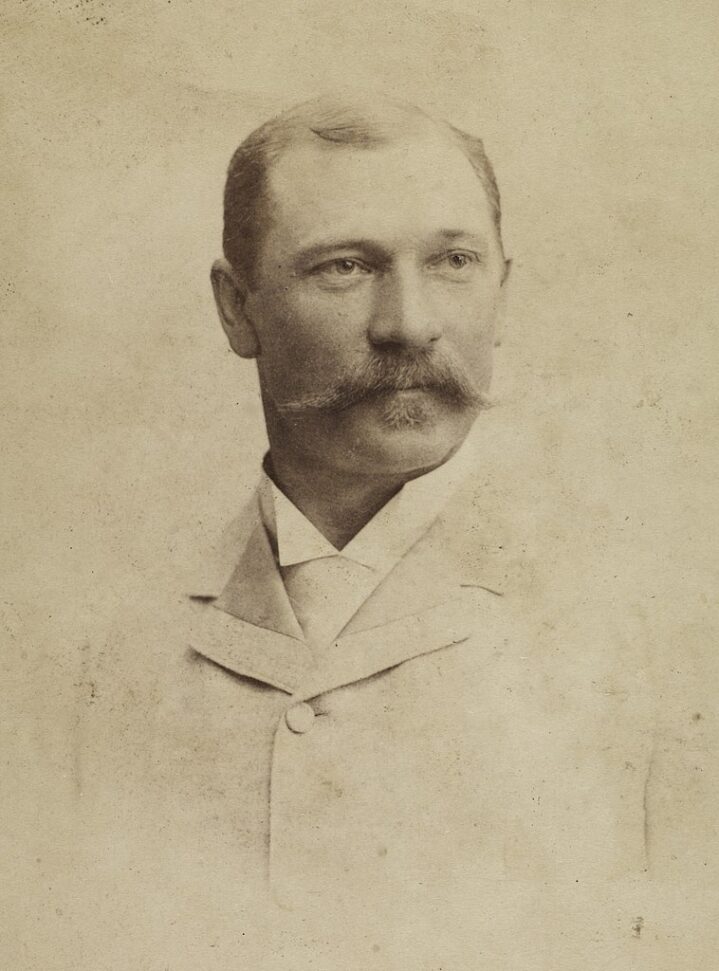
by Leonard le Blanc: A most influential “Falang” – Hans Niels Andersen and the East Asiatic Company Ltd.
Several “falangs” can successfully lay a claim to have had a direct, positive impact on Thailand and its rapid development into a modern nation during the 19th century.
This group of notables included Dr. Dan Beach Bradley, a noted educator, physician, and missionary; Bernhard Grimm, and his partner, Erwin Muelle, major traders and pharmacists, and Louis T. Leonowens, Jr., a successful entrepreneur and businessman. Most likely, the most influential person during this period would be a far-sighted trader, entrepreneur, and merchant, Hans Niels Andersen. He helped in the transformation of Thailand into a modernised, respected nation.
This modernisation, or Westernisation. was vital to the survival of Thailand as King Chulalongkorn (King Rama V) wanted to show to the European imperialist powers that Thailand was equal to modern Western nations and thus stave off colonialism or subjugation under the bogus excuse that Thailand was backward or unsophisticated and needed colonising. Andersen played a major role in quickly making that modernisation plan a reality.
Among the foreign traders, merchants, businessmen, and adventurers who were attracted to Thailand was a young sailor from Denmark, called Hans Niels Andersen, born in Denmark in 1852.
Andersen arrives in Bangkok
Andersen first arrived in Bangkok in 1872 at the age of 20. Although he did not stay long on this trip, he must have been fascinated with all things Thai. He would return in a few years for a longer stay. Andersen worked for several years as a sailor based out of Bangkok to gain more experience eventually rising from a sailor to first mate then sea captain. That experience paid off when he was appointed Master of a Royal Thai sailing vessel Thoon Kramon carrying trade goods from Bangkok to Singapore and Bombay.
In 1883, he took the ship to Europe carrying a load of teak wood. It was then considered an unusual, but highly valuable commodity. He returned with a cargo load of coal. Both goods were a total sensation in both locations. It was also an extremely lucrative venture for Andersen. He never looked back. Andersen quickly established himself as one of Thailand’s leading businessmen. He started a company in Bangkok in 1884 called Anderson & Company. His firm specialised in importing, exporting, owning sawmills, and teak logging through a concession.
Purchase of The Oriental
Andersen’s reputation was already well-established in Thailand. But he gained even more renown with his purchase of a somewhat dilapidated hotel along the riverfront called The Oriental in 1884. This property was right near his new company headquarters. He decided that Bangkok was fully ready for a luxury hotel. In short order, he had all the old buildings torn down, the swampy land around the site filled in, and hired one of the two Italian architects in the city to design a new Oriental Hotel in Italian Renaissance style. He also had the firm design some attractive villas that lined both sides of the short roadway that went from Charoen Krung Road to the hotel at the end.
Not known for doing things by half, he lured away a famous French chef from the French consulate and hired a barman named Spider who knew exactly what everyone drank. The place was grandly plush and sensational. When it opened to much fanfare in May 1887, it was the epitome of luxuriousness in the city, a title it still claims to this day. The ultimate seal of approval when King Chulalongkorn (King Rama V) paid a visit to the hotel in December 1890.
Andersen founded the East Asiatic Company (EAC) in Copenhagen, Denmark in March 1897. With headquarters in Copenhagen and Bangkok, it quickly grew to be a very wealthy global conglomerate with interests in shipping, trade, commerce, and investments. Initially, it offered shipping services between Copenhagen, Bangkok, and other Far Eastern ports. Through the decades that saw almost continuous expansion, the EAC offered shipping and passenger services around the globe through a number of subsidiary firms.
Return to Denmark
Andersen returned to Denmark in 1898. He served as Thailand’s Counsel General in Denmark from 1898 to 1932.
Eventually, the EAC became the largest and most respected company in Denmark with offices around the world with further diversified interests in insurance and marine propulsion. It had a captive business by owning its own vessels that transported export and import commodities and products in which the company had trading interests in.
Hans Niels Andersen died in Copenhagen in 1937. The EAC was eventually divested or wound up its many divisions and companies over the decades. The remaining stocks and shares now trade in London.



